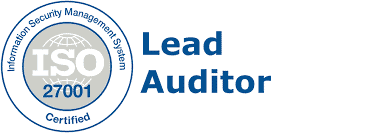PCI DSS Compliance and Audit
Comply with PCI DSS requirements simply, efficiently and with little overhead

Who has to comply to PCI DSS?
All merchants and or service providers that process, store or transmit cardholder data must comply with PCI DSS.
Merchants – Entities that accept debit or credit card payments for goods and or services even if they have subcontracted their payment card processing to a third party.
Service Providers – Entities that are directly involved in processing, storing or transmitting cardholder data on behalf of the entity.
Its best-practice approach helps organisations manage their information security by addressing people and processes as well as technology.
How to become PCI DSS compliant?
Service providers and or Merchants can demonstrate their compliance to PCI DSS by completing an audit of their CDE (Cardholder Data Environment) against the applicable requirements of the standard.
Types of Audit:
- PCI DSS Readiness Assessment – Gear up for PCI DSS compliance – Reduces the impact on your company, both operationally and financially, by benchmarking your current processes and controls against the PCI DSS requirements so that you can implement the appropriate requirements prior to the on-site assessment.
- ROC (Report of Compliance) – Onsite assessment will be carried by a PCI QSA organization or by an Internal Security Assessor.
- SAQ (Self- Assessment Questionnaire) – There are 9 types of SAQ, designed to meet the requirements of different types of merchant and service providers.
- External Vulnerability Scan – Will be conducted by an ASV (Approved Scanning Vendor)
The type of audit you must undergo and your exact PCI DSS Compliance requirements will vary depending on your merchant or service provider level, which is based on the number of card transactions processed per year.
The criteria applied will be based on those set by Visa and Mastercard.

Our Process
Below is the overview of our approach to ensure your organization had adequate internal controls over the TSPs to assure the CPA for issuance of SOC 2 reports.
Step 1: Scope Definition
This phase involves team introduction, determining the objectives, gathering of formal or informal policies, determining the roles and responsibilities of each member etc
Step 2: Gap Analysis
This phase involves performing a gap analysis against Standard’s requirement and reducing scope of the project where possible and close remaining gaps if any.
Step 3: Documentation
In this methodology, once the risks are identified, we would come up with a treatment plant to mitigate the risks. This would also parallely involve drafting the entire set of documentation for your organization.
Step 4: Training and Tracking
This phase involves training of key personnel to drive the ongoing compliance and providing evidence of measurable framework to demonstrate internal controls.
Step 5: Internal Audit
A formal review carried out before the final audit. This gives your organization an independent perspective before the final attestation.
Step 6: Final Audit by QSA
This is the final phase where an audit is carried out by a Qualified Security Assessor (QSA). The assessor will review your CDE and controls to ensure and record proof that you are PCI DSS compliant.
Deliverables

GAP Analysis

Risk Analysis and Treatment

Documentation Development

Training

PCI DSS audit certificate
Benefits of becoming PCI DSS Compliant
ISO 27001 compliance helps clients, prospects, stakeholders and other interested parties understand and gain confidence in the internal control environment of the service organization.
- Key Benefit: It provides detailed guidance on what you can do to protect the data, which can be then be applied to any size of organisation that is storing, processing or transmitting card data.
- Penalties: Each payment brand i.e Mastercard and Visa can fine acquiring banks for being non-compliant to PCI DSS and they can in turn withdraw the acceptance of card payment from the merchants.
Why Work with Us?
AVASURE Technologies Information Security Auditors are senior-level experts, holding certifications like CISSP, CISA, and CRISC, to help you maintain PCI DSS compliance.
Connect with us today to learn about the time it takes to achieve , understand the cost of receiving a PCI DSS report, and take part in a free demo of the Online Audit Manager.
Our Internationally-Recognized Certifications
![[AVAURE Technologies][8]licensed-penetration-tester-certification](https://avasuretechnologies.com/wp-content/uploads/2020/04/AVAURE-Technologies8licensed-penetration-tester-certification.png)
![AVASURE Technologies][63]certified-ethical-hacker-certification](https://avasuretechnologies.com/wp-content/uploads/2020/04/AVASURE-Technologies63certified-ethical-hacker-certification-e1588588666155.png)
![[AVASURE Technologies][918]comptia-pentest-certification](https://avasuretechnologies.com/wp-content/uploads/2020/04/AVASURE-Technologies918comptia-pentest-certification-e1588588680461.png)
![[AVASURE Technologies][337]cpte-pen-testing-engineer-certification](https://avasuretechnologies.com/wp-content/uploads/2020/04/AVASURE-Technologies337cpte-pen-testing-engineer-certification-e1588588692451.png)
![[AVASURE Technologies][312]cisa-certifications](https://avasuretechnologies.com/wp-content/uploads/2020/04/AVASURE-Technologies312cisa-certifications-e1588588637566.png)
![[AVASURE Technologies][66]comptia-security-certification-logo](https://avasuretechnologies.com/wp-content/uploads/2020/04/AVASURE-Technologies66comptia-security-certification-logo-e1588588889721.png)








Let's gets you PCI DSS Compliant!
info@avasuretechnologies.com
Phone
+91-8169729716
Address
4-Chandra Jyoti, Bhimani Street,
Matunga, Mumbai - 400019.
Get in touch!
Business Hours: 9am – 6pm, Mon – Fri.

